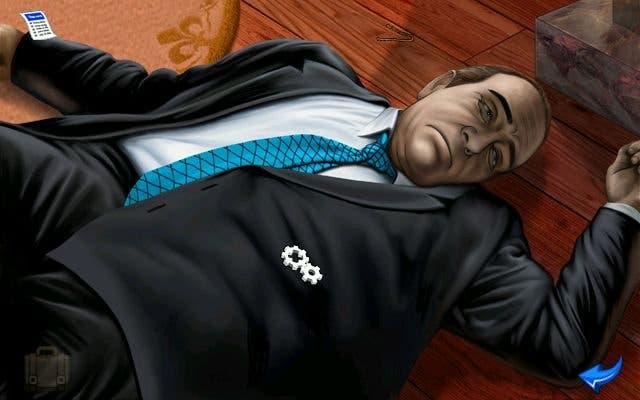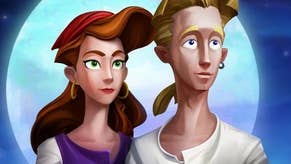Broken Sword: Shadow of the Templars - Director's Cut
By George, I think they've got it.
Games can be a cruel medium. There aren't many other things in life that so encourage the donning of the rose-tinted spectacles, yet which have progressed so rapidly as to render our memories naught but cruel twists of hindsight. Don't get me wrong, I'm not a member of the camp that thinks retro's place is under the stairs, but revisiting an old classic often serves to remind that we've moved on, in much the same way as trying to entertain yourself for an hour with a stick and a puddle.
Happily, sometimes you encounter a charming exception.
Shadow of the Templars is, to the greater extent, one such exception. Sure, it's had an overhaul of sorts, with new content and a few cosmetic tweaks, but the real joy remains in what made the original such a pleasure: good storytelling, likeable characters and an engaging, intriguing pace.
For those of you who haven't experienced Charles Cecil's point-and-click adventure in the 13 years since its original release, here's a quick overview. For the majority of the game players are in control of George Stobbart, an unheroic sort of protagonist who stays shy of Guybrush Threepwood's total ineptitude whilst remaining vulnerable yet chivalrous. He's an American on holiday in Paris - a young lawyer looking for nothing but a nice vacation and a spot of European culture.
But when a grim-faced clown murders a mysterious rain-coated stranger by bombing the café which Stobbart is drinking at, the genial youngster is drawn into an international conspiracy of calumny and ne'er-do-wells, which put the Knights Templar back into the public consciousness years before Dan Brown.

The bombing of a public café, even by a capering harlequin, might not sound like the most light-hearted of ways to begin an adventure, but the wit and banter of the excellent script maintains a levity that belies the dark nature of the plot. Without giving too much away, the murder case quickly expands to reveal world-threatening intrigue, ancient mystery and mild racial stereotyping, seeing young George travel all over Europe in the search for truth, justice and inventory items.
It's classic adventure stuff, with relatively simple puzzles that give pause for thought without frustrating, larger-than-life encounters and just the right mix of endangerment and enlightenment to hold the attention. Control via the Wiimote is a breezy pleasure, flicking around the lushly drawn environments and interacting with one of two button presses to examine, use, talk or take. Conversations are navigated through two rows of pictures, one representing subjects, the other the inventory. It's a genuine improvement over the mouse, with small rumbles pointing out items of interest as you move over them in case you miss the icon change, presumably compensating for the detail lost by the relative distance from televisions as opposed to monitors.
The core story might be the star, but the two or so hours of new content is worked in pretty seamlessly, and to great expositional effect. Whilst the original jumped into the deep end of the plot with George's explosive café experience, we're instead treated to a prologue of sorts, controlling the acerbic yet truth-seeking young photo-journalist Nico Collard as she sets off to interview a media magnate famed for his philandering. It's no real surprise that he's soon given short-shrift on the end of a bullet and Nico is embroiled in the mystery which leads her to meet George at the café shortly after the bomb goes off. These new scenes and locations offer a fresh insight into the intricacies of the conspiracy, feeling like plot devices removed due to time or space pressures originally rather than cynical modern additions.









